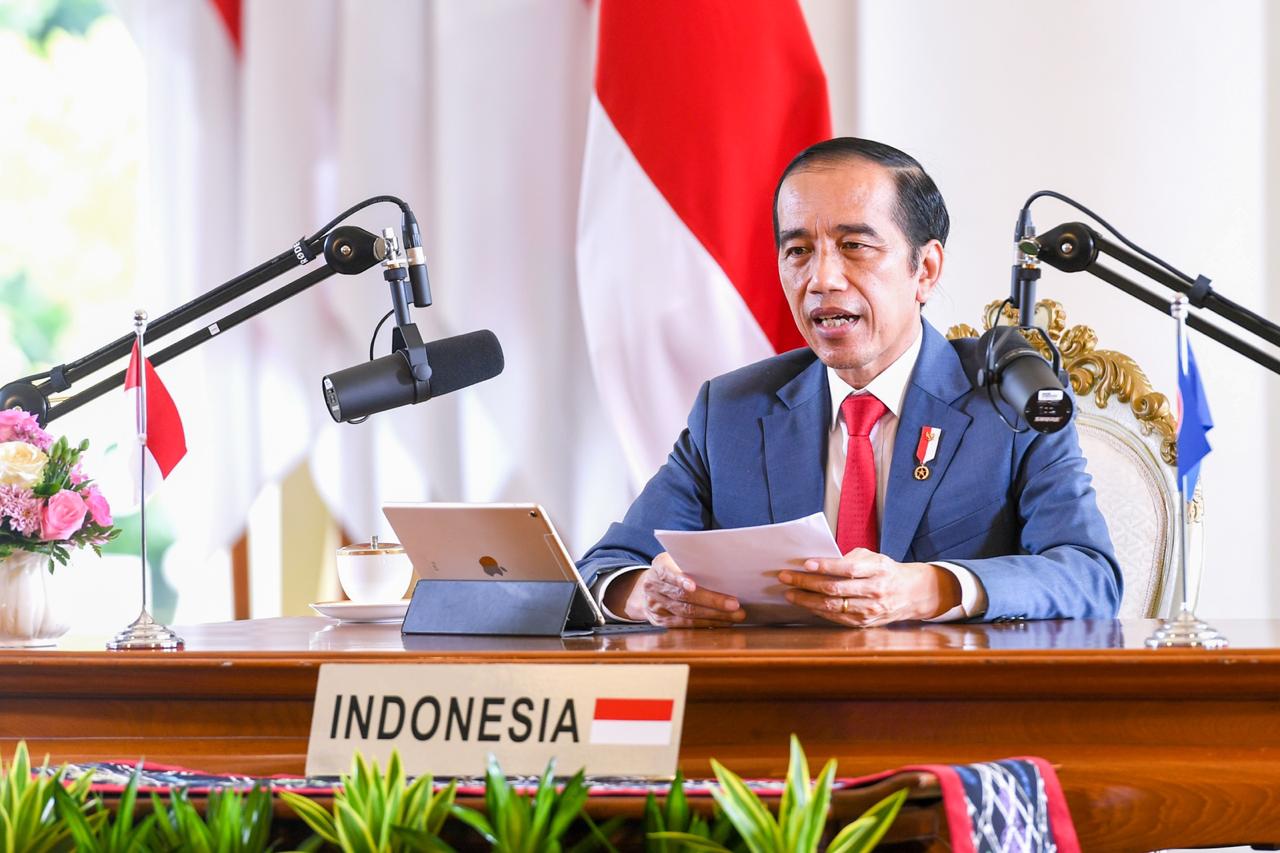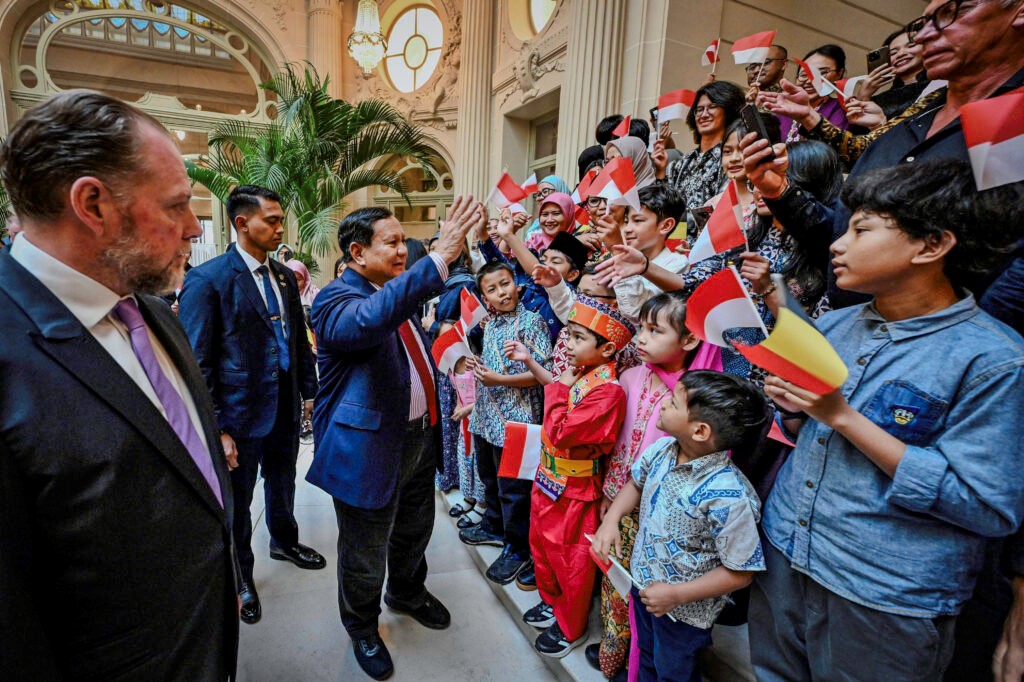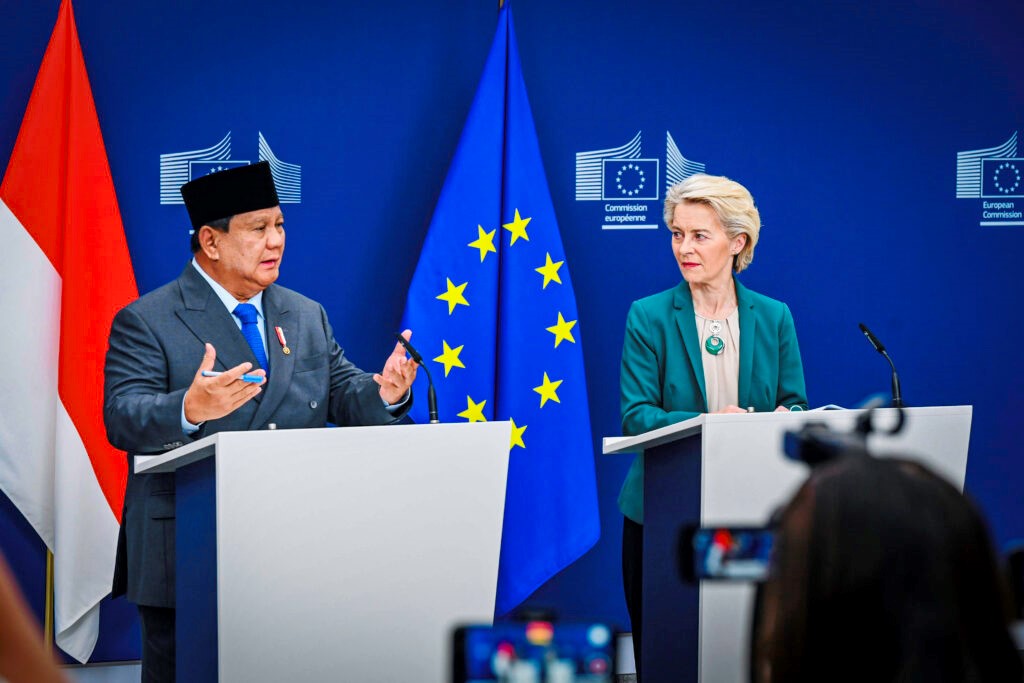Indonesia Raises Pandemic Management, Regional Stability Issues in ASEAN Summit

President Jokowi attends the 37th ASEAN Summit through video conference from the Bogor Presidential Palace, West Java. (Photo by: BPMI – Presidential Secretariat).
The impact of the COVID-19 pandemic is still being felt around the globe especially in health and economic sectors, President Joko “Jokowi” Widodo said in his remarks at the 37th ASEAN Summit (via video conference), Thursday (12/11).
“We still face big challenges, but the President invites participants of the Summit to continue work hand-in-hand and remain optimistic,” Minister of Foreign Affairs Retno Marsudi said during a press conference after the event.
The Minister further said that that President Jokowi welcomed the issuance of the ASEAN Declaration on an ASEAN Travel Corridor Arrangement (TCA) Framework. The President also expressed hope that the ASEAN Coordination Council and ASEAN Sectoral Bodies can work swiftly and efficiently so the framework can be implemented in the first quarter of 2021.
“In addition, the President welcomes the signing of RCEP (the Regional Comprehensive Economic Partnership) after eight years of negotiation and expressed hope that economic integration can bring benefits to the people of all RCEP countries,” she said.
According to Retno, President Jokowi encouraged the ASEAN to continue to play a central role in maintaining regional peace and stability. “With solidity and a strong commitment to advancing inclusive cooperation, the ASEAN will not be caught in rivalry between big countries,” she added.
In the ASEAN-China Summit, President Jokowi highlighted three issues. First, the transformation of digital-based economic cooperation between ASEAN and China is considered very crucial.
Second, the President applauded China willingness to provide the COVID-19 vaccines and medicines for the ASEAN region. “President Jokowi appreciates China’s decision to join the COVAX Facility and make vaccines as global public goods,” the Minister added.
Third, the President also highlighted the South China Sea regional stability. “The President once more emphasized the importance of respecting international law in the South China Sea. If we want to see the South China Sea peaceful and stable, it is important for all parties to refrain from behavior that may increase tension,” she added.
In the ASEAN-Japan Summit, President Jokowi said that ASEAN-Japan cooperation has enormous potential. Quoting the President, Retno said that in 2019, Japanese investment in ASEAN reached 20.3 billion while trade value reached 225.9 billion, and tourism value reached 10 million.
Therefore, she continued, the President stressed on two things: first, the importance of accelerating sustainable economic cooperation; and second, the importance of increasing strategic trust in the region. President Jokowi considered the paradigm of inclusive and win-win cooperation is important and can be done through—among others—the ASEAN Outlook on the Indo-Pacific framework, the Minister said.
In the ASEAN-South Korea Summit, Retno said that the President reiterated the importance of maintaining optimism which could be realized through two things, namely collaboration to support regional economic recovery and strengthening cooperation in the health sector, especially on the provision of medicines and vaccines.
In the ASEAN-India Summit, President Jokowi conveyed the importance of strengthening health cooperation and economic recovery. The President also welcomed a cooperation on doctoral education for 1,000 ASEAN scientists at the Indian Institute of Technology.
Moreover, the Minister said that President Jokowi also called for strengthening the implementation of the ASEAN-India Free Trade Area and expected India to join the RCEP. (SLN/UN)
Translated by: Galuh Wicaksono
Reviewed by: Mia Medyana








